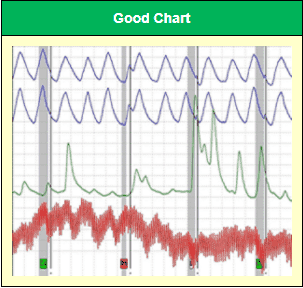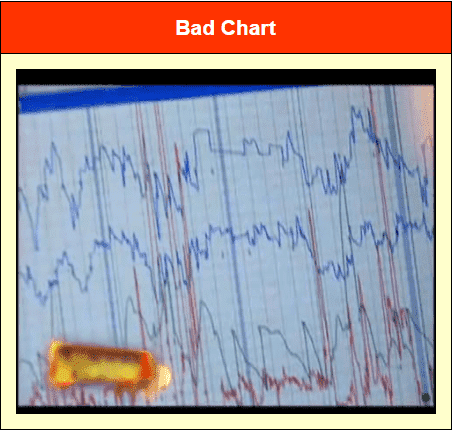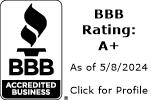How To Avoid Being Scammed
Polygraphy, a type of lie detector testing, is a legitimate science that has been around for nearly 100 years and continues to evolve and improve. Modern techniques have gotten the accuracy rate consistently within the 90 to 95% range (for specific issue testing). That is assuming, of course, that the test is done correctly. When a test is done incorrectly, it’s better not to have the test done at all. But how can you tell the difference? First you need to understand how a legitimate polygraph examiner is trained. After attending and graduating from a polygraph training school accredited by the American Polygraph Association (APA), the examiner undergoes an internship (typically one year) before becoming certified by the training facility. If the examiner is working in one of the states that requires a polygraph license, he or she must obtain that license following the internship. The examiner must then return to school each year for continuing education, and this training must also be approved by the APA. Most U.S. and Canadian examiners will belong to either the American Polygraph Association, the National Polygraph Association, or the American Association of Police Polygraphists in order to facilitate this continuing education and to keep abreast of the rapid changes being made within the industry.
Then you have the frauds. These “examiners” typically teach themselves how to conduct exams by reading books and manuals, then hang out their shingles. Others may tell you they completed training at XYZ polygraph school, but this school either doesn’t exist or is not an accredited training facility. Others may tell you they were “preceptor” trained, which means they were trained by a qualified examiner but never attended a formal polygraph school. In any case, you end up with an examiner who has not been properly trained to do polygraph testing. This examiner is not eligible to belong to the APA and is not permitted to attend most continuing education programs.
STEPS YOU CAN TAKE TO AVOID BEING THE VICTIM OF POLYGRAPH FRAUD
-
Verify the examiner’s primary polygraph training by asking which polygraph school they attended. Most polygraph schools will verify graduates over the phone. Then, check with the American Polygraph Association to verify the school is (or was) Accredited. Note: Many polygraph schools went out of business following federal regulatory changes in 1988. If you are unable to verify an examiner’s primary training directly with the school, you can verify it indirectly by making sure the examiner belongs to either the APA, NPA or AAPP (see links below). SHORTCUT: GPN already did this research for you.
-
American Polygraph Association, National Polygraph Association, American Association of Police Polygraphists
- Verify that the examiner or his/her company has a satisfactory (A or better) rating with the Better Business Bureau. Remember that a company does not have to belong to the BBB to have a BBB rating. Read the customer reviews on the BBB web site. SHORTCUT: GPN already has an A+ BBB Rating.
- Review the examiner’s Curriculum Vitae or resume for proper credentials. SHORTCUT: GPN has already evaluated its member examiners.
-
Verify that the examiner is licensed in the state or jurisdiction where the exam will take place. However, less than half the states in the U.S. require (or even offer) licensing for polygraph examiners, so in many cases the examiner will not require a license to operate. In these situations, it is critical to verify the examiner’s membership in one or more of the three organizations noted above. SHORTCUT: GPN has already verified this information for you.
-
Be cautious of any examiner charging significantly less than the average price for a given area. Any price under $300 should be a warning sign that the examiner may not have been adequately trained, is not maintaining his/her continuing education requirements, or is only providing exams as supplemental retirement income. SHORTCUT: GPN has already verified the credentials of its member examiners.
- Fraudulent examiners will accept bribes to alter test results. This is an easy one to check on your own. Phone your examiner and ask if there’s anything you can do to make sure you pass the exam. If the answer is anything other than “no” or “just tell the truth” then you have a problem. A fraudulent examiner will suggest discussing that issue at the time of the exam.
-
If the examiner offers you voice stress services or “over the phone” lie detection as a cheap alternative to regular polygraph testing, you’re about to be scammed. SHORTCUT: GPN members will not offer you less accurate alternate technologies.
-
Polygraph technology and techniques change frequently, so unless the examiner regularly attends continuing education courses he/she may not be using up-to-date techniques. Ask about recent CE credits achieved by the examiner and whether these credits are approved by the APA. SHORTCUT: GPN requires its members to be current with continuing education programs.
-
There are many rules for proper question design. Beware of examiners who allow the customer to write the questions, as it is highly likely the questions will not be properly formed. For example, answers can only be “yes or “no.” Factual questions only (we can not ask about opinions, intentions, feelings, thoughts, or the future). No lengthy questions are allowed. No more than four relevant questions can be asked in a single exam. This is just a few of the rules.
-
If the exam has already been conducted, make sure the exam took 90 minutes or longer and that no more than 4 related relevant questions were asked.
-
If the exam has already been conducted, you should receive a written report (at no extra charge) which should include the examiner’s name, address, phone number, signature, name of the examinee, date of the exam, the purpose of the exam, the list of relevant questions asked and answers given, and the analysis of those answers. Beware of any examiner who reports “Truth” or “Truthfulness” in a report. This is not typical terminology used in a polygraph report. SHORTCUT: Hiring a GPN examiner ensures you will get a written report.
-
If an examiner refuses to allow his/her test to undergo a Quality Control Review by an independent expert, that is a red flag that you have found a fraudulent examiner. If you question the results of the exam, any examiner should be willing to have his/her results Quality Controlled by an independent reviewer (who has been formally trained in the same technique). Ask in advance whether the examiner would be willing to have any disputed results reviewed by a QC examiner. GPN can provide QC reviews if needed. SHORTCUT: GPN members allow customers to get a second opinion of their exams upon request.
- Avoid the known fraudulent examiners, such as John Grogan, who calls himself “The Lie Detector Guy.” You can learn more about Grogan by clicking HERE.
COMPARE THE CHARTS
Look at the charts (polygrams). Below are two chart samples. The one on the left is from a real exam conducted by a qualified examiner. Notice the clarity and flow of the tracings (lines). The one on the right is from an exam conducted by a fraudulent examiner. The tracings are too erratic and corrupted for even the best examiner to analyze. This typically occurs when an examiner allows the examinee to talk or move while the equipment is recording.



